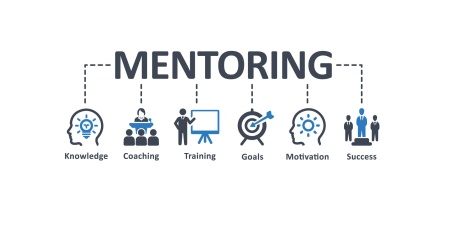A Fair, Principled, Mutually Beneficial Employment Plan
is Valuable to Individuals and the Organization
Time after time, our company finds itself engaged by new clients looking for our help to resolve family conflict. Many times, that includes conflict that, left unreconciled for too long, may have erupted into litigation.
While the nature of every disagreement is different, we have found that one of the most interesting — and paradoxical — similarities is that they all have longstanding relationships with professional advisors whose traditional focus is on money — and the details about how to grow it, how to minimize taxes and who will receive it through estate planning.
This attention to “financial planning” — without comparable attention to “people planning” — can come at a great cost to family businesses. This factor also helps explain the many challenges families have when working together.
We have found that integrating traditional planning around money, along with new strategies designed to help people collaborate, offers great promise to families — and to any business — that are looking to improve their “bottom line” and organizational culture. In addition, families in business together can benefit by developing an employment plan that will be well received by employees and stakeholders because it is fair, principled and designed to benefit both individuals and the organization.
New View: Employment Planning
Employment planning offers a perfect example of how “traditional strategies” can effectively meld with “21st-century strategies.” Families too often fail to appreciate how their businesses would benefit an organizational environment where people work together to advance a shared mission — and are empowered and capable to do the jobs they choose, as well as those they are being tasked to accomplish. This is the most effective approach to developing a succession plan that will help ensure that a business flourishes over the generations.
At Next Gen Advisors LLC, our planning approach is designed to thoughtfully integrate six key traditional success factors and six key contemporary success factors.
Traditional Success Factors
Here are the six factors considered among those traditionally applied to family business advising:
- Employment Qualifications. Family business owners can help their companies by creating a formal policy that provides transparent criteria for family member employment eligibility.
Most effective policies establish (i) minimum levels of education and work experience outside the family business, (ii) entry level positions based on an individual’s education and experience, (iii) continuing training over time, and (iv) a structured approach to assessing and reviewing performance over time.
- Personality Profiles. There are a number of well-recognized personality and leadership assessments that can be helpful in enhancing self-awareness and, through that, identifying positions that allow family members to leverage their strengths. This is a process that energizes individuals and better positions them to contribute to the company’s success.
- Employment agreements. Family businesses benefit from the thoughtful use of employment agreements and policies that provide clarity as to roles and responsibilities associated with various jobs.
- A Rational Compensation Methodology. Developing a rational approach to fairly compensating employees, particularly family members working in a business, helps to both incentivize hard work and provide stakeholders a sense of confidence that resources are being fairly allocated.
- Non-Financial Rewards. Small rewards can increase employee satisfaction and productivity. Effective rewards can be as simple as providing free snacks or scheduling “dress down” days.
- Performance Feedback. Compensation should be aligned with performance. Ongoing and structured feedback is invaluable to helping employees mature and improve.
Critical “Soft Stuff” Components
While traditional planning strategies are designed to bring the right people into a family business, organizations without a plan to develop and nurture teamwork are likely to find their efforts insufficient. Their bottom lines may suffer. A lack of teamwork can easily slide into dysfunction.
Some “21st-century” strategies that we have found helpful to build collaboration with the family business organization are as follows:
- Foster Positive Working Relationships. Science shows us the greatest way to influence our happiness is to invest in our relationships. When employees are in “good moods,” they help create organizational energy. But if employees are in “bad moods,” they can zap it. Promoting a collegial culture can be as easy as organizing shared meals, group outings and after-hours social events.
- Eradicate Incivility. Research has shown how workplace incivility exacts many costs, including loss of focus due to stress, time spent worrying and reduced interest in collaborating with colleagues. A Code of Conduct can be helpful in reducing — and addressing — incivility.
- Mind Your Positivity Ratio. Barbara Frederickson, a professor at the University of North Carolina and a bestselling author, has extensively researched positive versus negative emotions. Family businesses can benefit by creating more “positive” conversations than “negative” ones in order to foster organizational energy that, in turn, can be used to accomplish goals and objectives.
- Foster Appreciative Communications. Science is also informing how people and organizations can improve the quality of their lives by spending more time “pursuing possibilities” and less time “problem solving.” Families in business can benefit from scheduling regular, face-to-face meetings, with an agreed-upon meeting agenda that considers opportunities and possibilities.
- Promote Growth Opportunities. Employees want to be offered opportunities for growth. Family businesses can create an environment that supports this in coordination with their performance feedback plan.
- Promote Humility. No one enjoys arrogance. Research confirms that practicing humility in the workplace not only nurtures workplace culture but is an effective company growth strategy as well. Family leaders can model humility; their example can help create a stronger and more collegial culture.
In conclusion, families in business together can benefit by developing an employment plan that will be well received by employees and stakeholders because it is fair, principled and designed to benefit both individuals and the organization. Great employment strategies, resulting from coaching talented employees over a number of years, also enhances the likelihood that a family’s succession planning will work.
In our consulting and advising experience, these strategies can help position any business for long-term success. We encourage all family businesses to seriously consider these recommendations as a route to more effective family business operations.
Scott E. Friedman is the founder/senior advisor of Next Gen Advisors, LLC, a family business consulting firm that is helping to pioneer new strategies for family owned and closely held businesses. Friedman, a nationally recognized authority on family business, is the author of five books and numerous articles on the subject and is an executive in residence at the University at Buffalo. He can be reached at [email protected] or 716-218-7566.
Mary Owen is a principal and senior advisor for Next Gen Advisors, LLC and a Pro Dynametrics Programs certified professional. She is a life trustee with the Ralph C. Wilson, Jr. foundation and has held leadership roles with the National Football League and the Buffalo Bills. She serves in board capacities for the University of Virginia’s Jefferson Trust and the Pro Football Hall of Fame. A graduate of the University of Virginia, she also holds an MBA from Walsh College.










